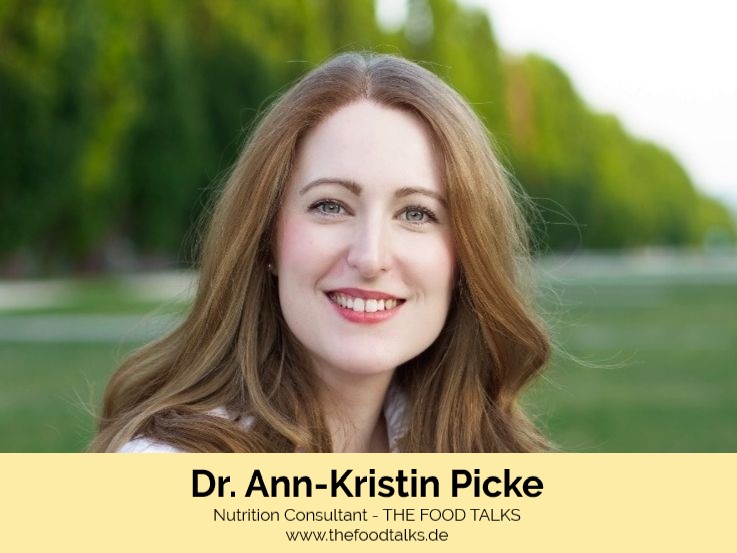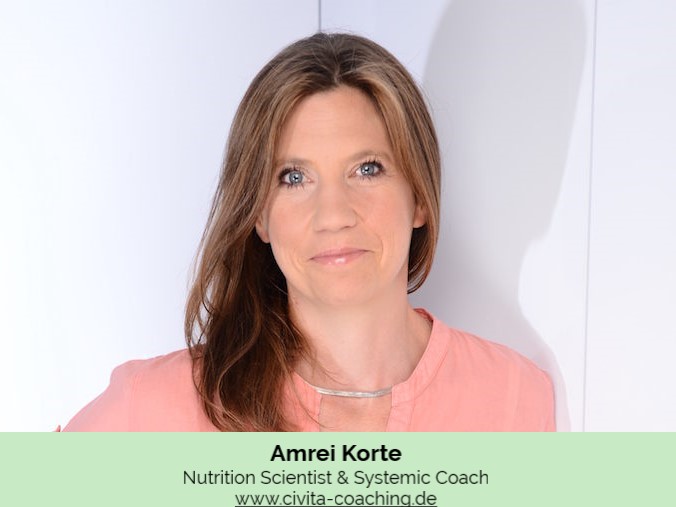Top 10 Nutrition Trends in 2020
- Simone Frey

- Jan 14, 2020
- 6 min read
Updated: Aug 31, 2021
Are you interested in the hottest food trends in 2020? So are we! But what we consider even more exciting are the top nutrition trends. We asked nutrition scientists to share their observations from day to day work as nutrition coach, teacher, influencer or within their industry. You may wonder what the difference between food and nutrition trends is? Food is a product we consume. Nutrition is a physical, psychological and social behaviour leading to a healthy and happy life.
Here is what we did: We asked nutrition scientists from our network who work directly with consumers. Our online survey included the following two open questions:
Which trends do you observe in your work area and how do you value these?
Which of these trends will be enforced by 2025?
We analyzed the nutrition scientists’ answers and identified the following top ten trends.
These are the top 10 nutrition trends to look out for in 2020:
Sustainable & Environmentally-friendly Nutrition
Vegan & Plant-based Nutrition
Personalised Nutrition & Biohacking
Nutrition Confusion
Prevention through Nutrition Education
Alternative Proteins
Health at Every Size & Mindful Eating
Meal Replacement & Nutrients on the Go
Ketogenic Nutrition
Sugar-free Nutrition
Now, let's have a closer look...
Share the top 10 nutrition trends with your network. Download here.
1. Sustainable and environmentally-friendly nutrition
Our experts observe that consumers increasingly make their food choices based on criteria such as sustainability and environmental impact. Furthermore, consumers prefer to purchase food products with little to no packaging, ideally from local and social businesses. They also increasingly choose regionally and seasonally grown fruits and vegetables and some of them even grow fruits and vegetables themselves at home or in community spaces.
“I work in clinical and sports nutrition. In both areas the interest in plant-based, sustainable diets are, increasing.” Dominik Machner - Sports, Health and Performance Scientist, Pain Therapist
„In social media and among our almost 22 K followers, environmentally-friendly and fair consumption is almost an obligation.” Jan Rein, Nutrition Scientist, Influencer and Blogger
2. Vegan and Plant-based Nutrition
The nutrition experts observe that vegan and plant-based nutrition will move to the mass market with increased demand in vegan convenience products, which ideally are packed in environmentally-sustainable packaging. Vegan and plant-based diets will expand to fields of sports nutrition and clinical nutrition.
“I have been working in the sector of clinical nutrition for the last 10 years and one thing I observe is the increased demand for vegan high-quality supplements.” Katrin Meyer, Nutrition Scientist and Clinical Nutrition Expert
3. Personalised Nutrition & Biohacking
We observe an increase in allergies, intolerances, and the desire to optimize body performance: Therefore consumers choose to follow their personal health scheme more and more often by using (digital) health trackers, performance supplements (such as “advanced probiotics”) or diagnostic tests (DNA, biomarker, microbiome, metabolome). In sports nutrition we observe a trend to consume less supplements and optimize performance by applying specific diets such as a ketogenic diet. Not new, but the demand will increase.
“I've noticed an increasing range of individually tailored nutrition concepts, from listening to your body's natural cues to using technology such as DNA tests or gut microbiome analysis on the other side of the spectrum. All these concepts of personalised eating not only promise to make eating more fun and enjoyable again, but also aim to improve individual health and well-being." Dr. Antonie Post - Nutrition Scientist, and Health & Nutrition Writer
4. Nutrition Confusion
We observe that consumers experience an overload of nutrition information - often with contradictory facts about “the right” diet. Wrong and misleading nutrition information on millions of blogs and social media feed the consumers' confusion.
"In daily mails or direct messages from our almost 22K followers on Instagram, we observe the necessity for more scientifically based content, written in people’s everyday language.“ Jan Rein, Nutrition Scientist, Influencer and Blogger
5. Prevention through Nutrition Education
The demand for dietetic treatment increases, especially in clinics where the demand is often not met due to limited financial resources. Furthermore, consumers are increasingly aware that investing in nutrition education for children is a powerful tool to foster healthy habits from early on. Our experts observe health and nutrition education in companies being shifted from solely being focused on physical activity to a more holistic approach with nutrition and mindfulness being equally important topics.
“During my work in the health care sector and in nutrition education, I have been observing that successful nutrition communication for a healthy diet should be easy to understand for everyone and provided with a good sense of humor. Recipes and recommendations need to be close to everyday life and easy to implement." Kristin Vieler - Nutrition Scientist, Public Health and eHealth Expert
"In my work with families, I observe that parents want kindergarten and schools to become a place for nutrition education and healthy meals for their kids." Dagmar v. Cramm - Bestselling Author & Expert Children's Nutrition
6. Alternative Proteins
Consumers increasingly look for alternative proteins, especially convenient plant-based foods that replace cheese, sausages, and meat. According to our expert panel these products, however, will only succeed in case that they are natural, low in preservatives and have a clean and clear ingredients list. Furthermore, the acceptance of clean meat will increase once no more fetal bovine serum is required to grow meat cells (apart from a competitive price, obviously).
7. Health at Every Size & Mindful Eating
While the last decades were characterized by counting calories, dieting, and the yo-yo effect, our expert panel observes a trend towards less food bans and a more fun and relaxed approach to nutrition nowadays: Health at every size (HAES) and mindful eating are two of the important buzzwords here. HAES helps people of all sizes finding compassionate ways to take care of themselves and is a result of the “fat acceptance and body positivity movement”(Baeza Scagliusi, F. (2018): Effects of health at every size® interventions on health‐related outcomes of people with overweight and obesity: a systematic review. Obesity Reviews). Mindful eating as a concept describes actively paying attention to our food, moment by moment, without judgment. Both approaches focus on the individual itself and his/her intuition, leading to a sustainable, positive mindset: For one individual, having breakfast might be the most important meal of the day, while for another person, breakfast is not important. In summary: less compulsion and more pleasure.
“Evidence has shown that weight loss interventions through dietary restriction, exercise, and behavior modification have mostly failed. The health at every size movement is becoming increasingly popular and I've made it my mission to promote this weight neutral approach for more health and well-being in Germany." Dr. Antonie Post - Nutrition Scientist, and Health & Nutrition Writer
8. Meal Replacement & Nutrients on the Go
Traditional food habits have progressively changed: In modern families, both parents work which leads in turn to full-time care of kids in kindergarten and schools. A couple of decades ago the most important meal in families was lunch – today it is dinner. Therefore employees increasingly search for meal replacements and “nutrients on the go” supporting them during long working days. In addition they want to be able to follow a healthy diet rich in nutrients. “Nutrients on the go” include solutions that provide foods or supplements based on natural ingredients that enhance the body's performance. In private dietetic consultations we observe clients increasingly requesting nutritious meal replacements which they can integrate in their busy lives.
9. Ketogenic Nutrition
Ketogenic diets will be used by a broader range of consumers. For population groups such as athletes, there is a trend to reduce supplement intake and implement specific diets instead. A ketogenic diet, being one of those, is a high-fat, low- carbohydrate but normal protein (20% of energy intake) diet that forces the body to burn fats rather than carbohydrates to generate energy. The “classic” therapeutic ketogenic diet was developed for the treatment of pediatric epilepsy in the 1920s. Today its benefits are investigated in patients suffering from Multiple Sclerosis, Alzheimer and Acne among others (Keto Kompass, Ulrike Gonder).
“In Sports nutrition and bodybuilding a ketogenic diet is well established. What we see now is that amateur sportsmen are requesting more information about it to implement a ketogenic diet in the training plan.” Dr. Christina Steinbach, Sports Nutrition Scientist, and B2B Sales Expert
10. Sugar-free Nutrition
Parents are well-informed about the adverse effects of products high in sugar. Due to the desire of providing healthy eating habits, the anti-sugar movement will continue and needs to - according to our expert panel - be accompanied by evidence-based campaigns educating parents and children about sugar, sugar substitutes, and sweeteners.
“In my work with families, I observe the desire to provide healthy meals to kids. Many parents require support in understanding the amount of sugar in different products and its effects." Sarah Schocke - Nutrition Scientist and Family Nutrition Expert
All authors have a scientific degree in nutrition, dietetics, health and/or sports and work in various areas within the nutrition sector. Learn more about the authors here:
























































